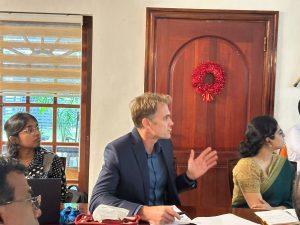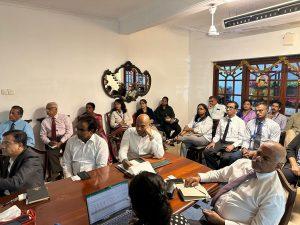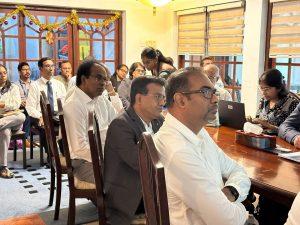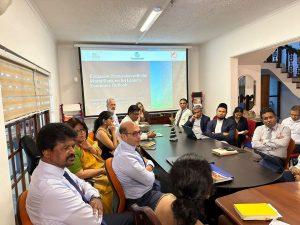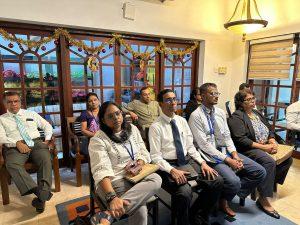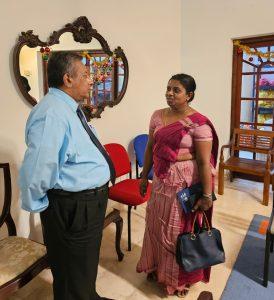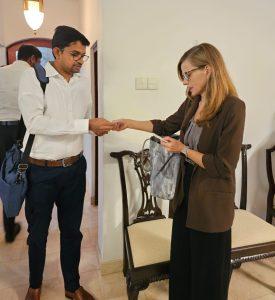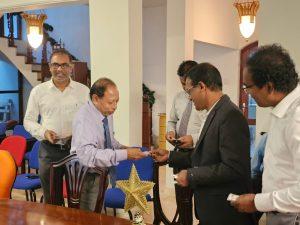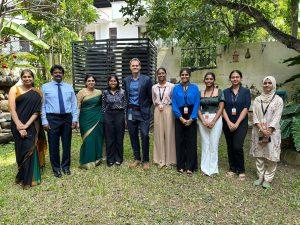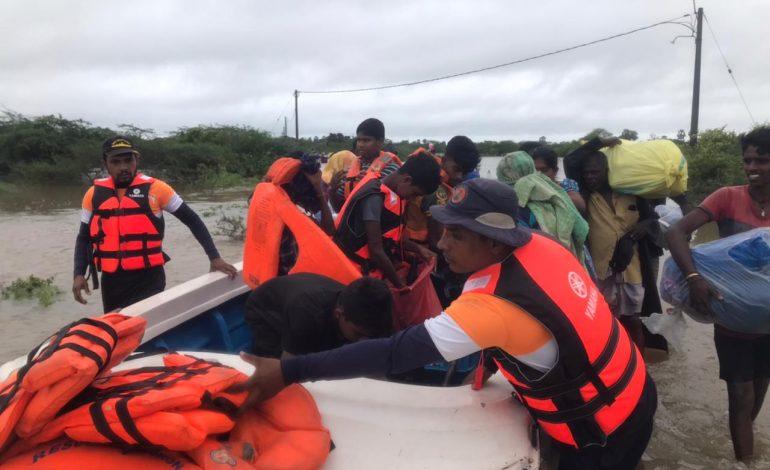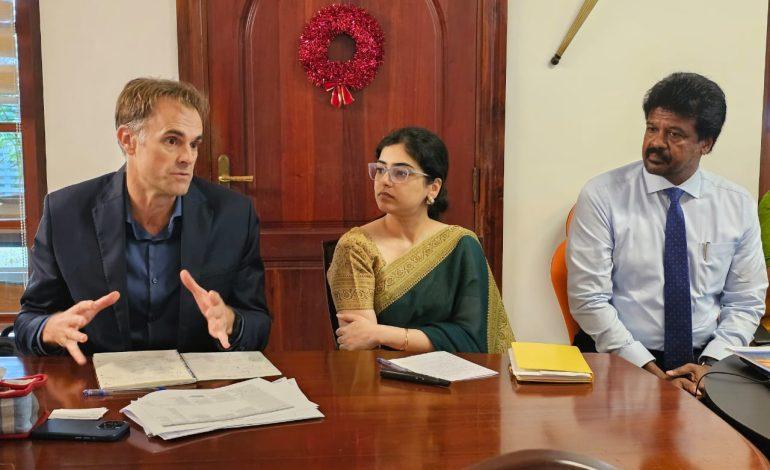
A-PAD SL Hosts Exclusive Discussion on Sri Lanka’s Economic Outlook with the World Bank
The Asia Pacific Alliance for Disaster Management Sri Lanka (A-PAD SL) hosted an exclusive discussion on the latest Sri Lanka Development Update report launched by the World Bank. The event, held at A-PAD SL office in Colombo on 9th December 2024, saw the participation of distinguished economists from the World Bank, senior representatives of leading private sector organizations, business chambers, and industry associations.
The discussion gathered key representatives from various sectors, fostering an insightful exchange of views on Sri Lanka’s current economic situation and future prospects. It offered a valuable opportunity for stakeholders to engage directly with the World Bank’s economists, share their expertise, voice concerns, and highlight critical issues that may have been overlooked. The diverse group of participants also provided the World Bank team with a broad range of sector-specific insights, concerns, and recommendations, deepening their understanding of the country’s economic challenges.
Sri Lanka Development Update (SLDU)
The Sri Lanka Development Update (SLDU) is a bi-annual report that offers vital insights into the country’s economic outlook, addressing both challenges and opportunities. The discussion was led by Mr. Richard Walker, Senior Country Economist, and Ms. Shruti Lakhtakia, Country Economist, who provided a thorough overview of the report’s key findings. Mr. Shabih Mohib, Manager, also contributed with further analysis and deeper insights into the findings.
Key highlights from the report include:
- Stabilization Amid Challenges: Although Sri Lanka’s economy has stabilized, ongoing issues such as poverty, inequality, and vulnerability persist. The recovery in industries and tourism has supported stabilization, but fiscal consolidation measures, including higher indirect taxes, are putting pressure on household budgets.
- The Need for Structural Reforms: For sustained and inclusive growth, it is essential to maintain policy consistency and implement structural reforms in the monetary, fiscal, and financial sectors. These reforms must be paired with progressive revenue measures to alleviate the impact on households.
- Unlocking Export Potential: Sri Lanka has significant untapped export potential, estimated at $10 billion annually, particularly in manufacturing. Realizing this potential requires reducing high tariffs and attracting more investment. The country’s protectionist policies have hindered competitiveness, limiting its overall economic growth.
Roundtable Insights and Sector-Specific Opportunities
During the interactive roundtable session, participants shared their feedback on the World Bank’s recommendations. Key discussions focused on:
- Fiscal Reforms: There was strong emphasis on the need to recalibrate the government’s revenue structure, prioritizing direct taxes to reduce the heavy reliance on indirect taxes, which disproportionately affect households.
- Investment Climate: Participants advocated for a clearer and more strategic investment vision, fewer regulatory hurdles, and enhanced support for private sector growth. They also highlighted the need to re-establish development banks to foster investments in industry and startups.
- Sectoral Growth Opportunities: Experts explored growth potential in sectors such as tourism, agriculture, IT, and renewable energy. Unlocking the agricultural sector’s value and improving Sri Lanka’s tourism offerings were identified as key drivers for economic diversification.
Mr. Firzan Hashim, Country Director of A-PAD SL, concluded the meeting by thanking the World Bank for their support and for facilitating such a meaningful and engaging discussion. He emphasized the critical importance of multi-stakeholder collaboration in addressing Sri Lanka’s economic challenges and identifying pathways for sustainable growth. Following the discussion, a networking session allowed participants to further exchange ideas and engage with the World Bank team on the topics explored.
A-PAD SL hosted the event, emphasizing the crucial link between Disaster Risk Reduction (DRR) and economic growth. A resilient economy is crucial for mitigating the impacts of disasters and ensuring sustainable development. A strong economy enables the government and private sector to allocate funds for preventive measures, such as reinforcing buildings and creating disaster-resistant infrastructure, which can save lives and reduce economic losses in the event of a disaster. Moreover, economic growth enhances the capacity of businesses and communities to adapt to and recover from disasters, ensuring that both the private and public sectors are better equipped to handle shocks.

